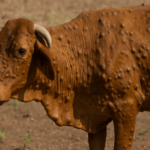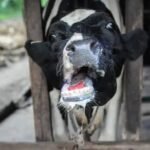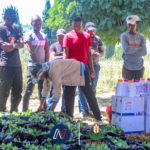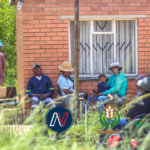By Karabo Ramathe
At Lesotho Agricultural College (LAC), tertiary education is fast becoming more than just academic theory, it’s a launch pad for entrepreneurship.
Students demonstrated their potential to become future business leaders as they showcased their Student Enterprise Projects (SEP), reflecting innovation, resilience, and business acumen tailored to the needs of Lesotho’s agricultural economy.
Held under the theme of self-reliance and sustainability, the SEP presentations spotlighted student-led businesses addressing unemployment, food security and real-world agricultural challenges.
“The objective is to encourage students to be independent,” explained Lineo Mosaile, Assistant Lecturer in the Department of Animal Science and SEP supervisor.
“We want them to graduate not just as job seekers, but as job creators,” she said.
The SEP model offers students seed funding based on approved business proposals. Once projects are complete, students are expected to repay the loan with a 24% annual interest and a service fee—a structure that mirrors real-world financial systems and instils accountability.
“Students are treated like entrepreneurs. They apply for funding, justify their proposals and are held responsible for how the money is used,” said Thabo Matsepe, a lecturer and key SEP coordinator explained.
He added, “Mismanagement or failure to repay affects their academic records and future funding eligibility.”
Matsepe acknowledged, however, that financial constraints threaten the program’s growth.
SEP requires M1.2 million annually to run effectively, but for 2025, the fund received only M800, 000, with M500, 000 contributed by the government in 2023.
“We are appealing to both government and private sector stakeholders to support this transformative program. It empowers youth and directly contributes to national development,” he said.
Among this year’s standout projects was a vegetable production business led by Katleho Makhele and his team.
Granted M66, 000, the group impressively utilised only M45, 000, returning M21, 000 to the SEP account.
Their enterprise cultivated a variety of crops including spinach, carrots, beetroot, green beans, and potatoes. Their targeted marketing strategy focused on the LAC community, local vegetable vendors, and social media promotion. Despite setbacks like erratic weather, limited irrigation, and crop damage from animals, the group thrived.
“This project taught us corporate skills, reinforced our practical knowledge, and helped us contribute to food security. We now plan to formalise this into a fully operational farm to help grow Lesotho’s economy through agriculture,” said Makhele.
Makhele extended gratitude to LAC staff and supervisors for their guidance, as well as to the broader college community.
“Above all, we thank God for the strength and opportunity to execute this project successfully,” he said.
Another noteworthy initiative was a baby chicken production business spearheaded by Motlatsi Nhlapo and his team.
With M12, 194 in funding, they serviced clients within the LAC community and cultivated a regular customer base, including professionals like Dr. Tamuka. Despite facing stiff competition, theft and threats from predators such as cats, the group is ambitious.
“We envision a full-scale hatchery within the next eight years, but we need support from both the government and individual investors to scale up.”
Matsepe stressed that the Student Enterprise Project is not just building businesses but character, confidence, and a culture of entrepreneurship among graduates of LAC.
“As graduates go on to establish farms, agribusinesses, and cooperatives, the impact of SEP is already being felt. With consistent investment and institutional support, LAC’s SEP initiative could help rewrite the narrative of youth unemployment by turning graduates into the country’s next generation of agricultural innovators,” he emphasised.








